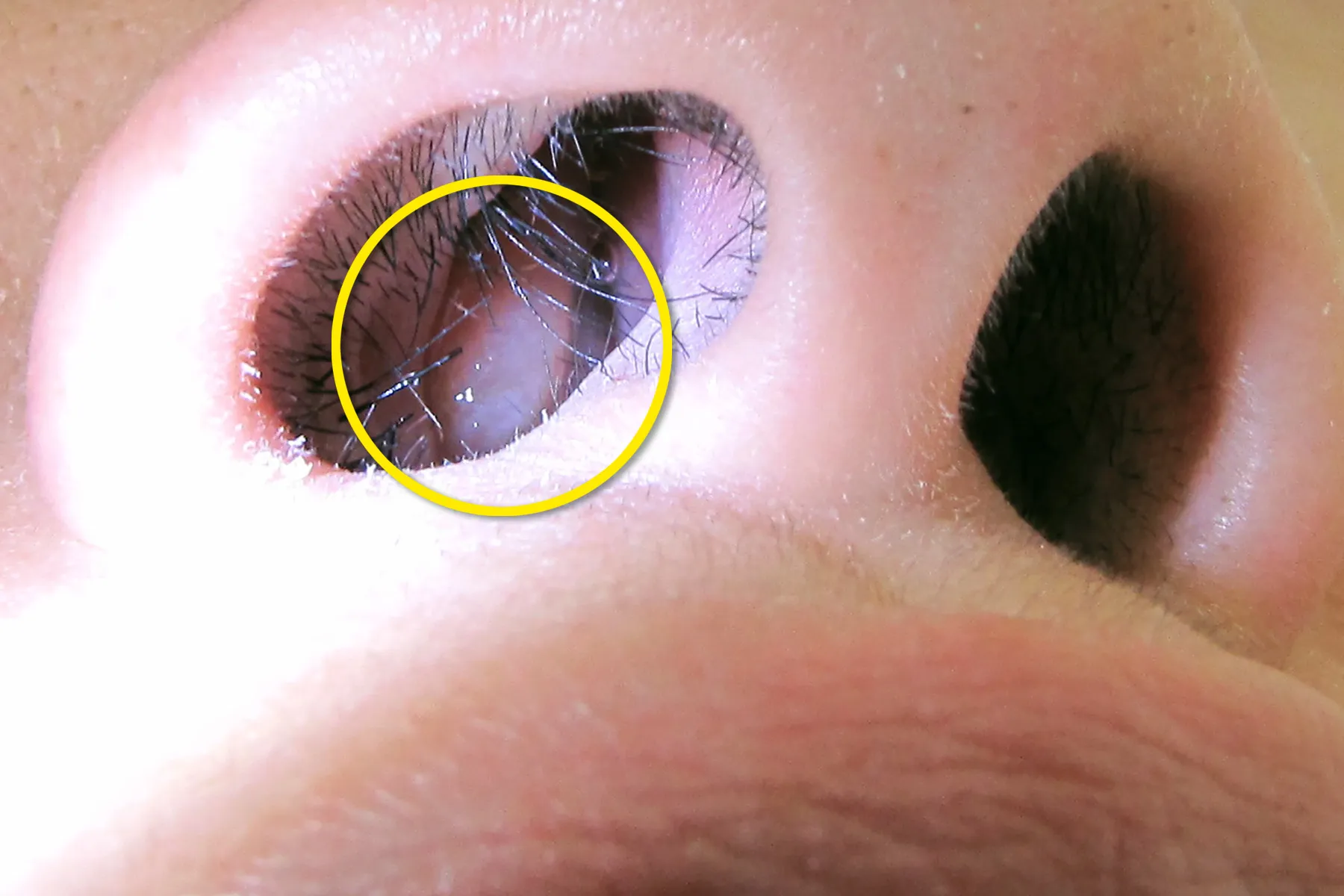
You might be tempted to ignore symptoms like congestion, runny nose, and itchy eyes, thinking they’re due to seasonal allergies or a cold. And most often, they are. But if they last for a long time, these symptoms could mean you have nasal polyps.
Nasal polyps are noncancerous growths in your nose and sinuses, often shaped like teardrops. The polyps tend to form in clusters, says Yasmin Bhasin MD, allergist and immunologist at Allergy Asthma Care in Middletown, NY. They often occur in both sides of your nose.
The symptoms of nasal polyps include:
- Congestion
- Trouble breathing
- Postnasal drip
- Runny nose
- Cough
- Pressure around the sinuses
- Decreased sense of smell
- Itchy eyes
- Facial pain
- Headaches
Sometimes, nasal polyps grow big enough to block your sinuses. When this happens, you may have trouble breathing.
Nasal polyps are a fairly common condition. About 4% of the total population is diagnosed with nasal polyps.
Doctors don’t fully understand what causes them, says Philip Halverson MD, an allergist with Allergy and Asthma Specialists in Minneapolis. But they’re thought to be linked to a combination of genetics, age, and environmental factors such as allergens.
Experts believe nasal polyps develop as a result of an abnormal immune response. That’s when your body has an over-the-top reaction to viruses, allergens, or other invaders that penetrate the protective barrier inside your nose.
That triggers inflammation and swelling and makes your body produce too much mucus. This reaction causes the growths to form, adds Cecelia Damask, DO, an otolaryngologist in Lake Mary, Fl.
Medical conditions that lead to long-term inflammation in your nose or sinuses increase your risk of getting nasal polyps. Polyps are more likely to affect people with:
- Allergies
- Asthma
- Sensitivity to aspirin
- Hay fever
- Cystic fibrosis
Nasal polyps are most common in those who get repeated sinus infections. In fact, 25% to 30% percent of people with chronic sinusitis also develop nasal polyps.
You also may be more likely to get nasal polyps if other members of your family have been diagnosed with them. They’re thought to be linked to genes involved in your immune system and your body’s inflammatory response.
They most often affect people in their 30s and 40s, though you can get them at any age.
While nasal polyps can grow so large that they hang down outside the nostrils, Damask says, most are so small that people have no idea they exist.
“Most people go to the doctor because they constantly have a stuffy nose,” Bhasin says. “They aren’t aware that they have nasal polyps.”
Even your doctor might not be able to tell that you have polyps, Bhasin says. The growths can be small and sit so high in the sinuses that a doctor can’t see them during a physical exam.
In some cases, doctors do a rhinoscopy. In this procedure, they insert a small, flexible tube that includes a camera and light into your nose to look for nasal polyps. Or, you might need a CT scan or MRI of your sinuses to get a diagnosis.
Bhasin says that medications, like nasal sprays, antihistamines, allergy medications and injections of biologic drugs, can work to clear up nasal polyps. But in some cases, medication isn’t enough.
“When medical treatments fail, a referral may be made to an otolaryngologist to evaluate for surgical removal, called a polypectomy,” Halverson says. “This procedure is effective in improving the nasal airway.”
Once your doctor diagnoses you with nasal polyps, they tend to return over and over. In one study, researchers found that 35% of patients saw their nasal polyps return within 6 months of surgery. That number rose to 40% percent 18 months after surgery.
Without treatment, nasal polyps could continue to grow, Damask says. Your symptoms can get bad enough to seriously affect your daily life.
“I hear heart-wrenching stories from patients,” Damask says. “It has so dramatically impacted their sleep because they can’t breathe … and their sense of smell and overall quality of life.”
While there’s no cure for nasal polyps, these steps can help reduce your risk of getting them, and help you control your symptoms if you do:
Prioritize allergy treatments: If you have allergies, Bhasin advises that you work with an allergist to develop and maintain a treatment plan. Reduce your exposure to things that trigger your allergies, and take medications to keep them in check. This can prevent polyps from developing and lessen your symptoms if they do.
Quit smoking: Research shows that 18% of smokers have nasal polyps, compared with less than 4% of the population as a whole. The reason: Smoking promotes inflammation that could trigger the growth of polyps.
Use a nasal rinse: A saline rinse adds moisture to your nasal passages. This helps prevent inflammation, which contributes to the growth of nasal polyps. Rinse daily for the biggest impact.
Buy a humidifier: Adding moisture to the air reduces inflammation in your nasal passages. It also improves the flow of mucus in your sinuses and prevents blockages that raise your risk of polyps.
Bhasin acknowledges that living with nasal polyps can be frustrating. She recommends a combination of preventive measures and medical management.
“There is a lot that can be done to help you feel better,” she says.






